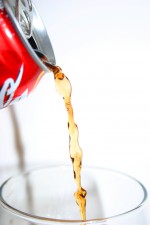 It isn t very often that a world-renowned, respected teaching facility, such as Harvard University s Brigham and Women s hospital, publicly apologizes for promoting bad research but that is exactly what they did. The so-called study, led by Dr.
It isn t very often that a world-renowned, respected teaching facility, such as Harvard University s Brigham and Women s hospital, publicly apologizes for promoting bad research but that is exactly what they did. The so-called study, led by Dr. It isn t very often that a world-renowned, respected teaching facility, such as Harvard University s Brigham and Women s hospital, publicly apologizes for promoting bad research but that is exactly what they did. The so-called study, led by Dr. Eva Schernhammer and her team of researchers at Brigham and Women s hospital, concluded that those who drink a daily diet soda sweetened with aspartame could have an increased risk of leukemia, lymphoma or non-Hodgkin s lymphoma.
It isn t very often that a world-renowned, respected teaching facility, such as Harvard University s Brigham and Women s hospital, publicly apologizes for promoting bad research but that is exactly what they did. The so-called study, led by Dr. Eva Schernhammer and her team of researchers at Brigham and Women s hospital, concluded that those who drink a daily diet soda sweetened with aspartame could have an increased risk of leukemia, lymphoma or non-Hodgkin s lymphoma.
Aspartame, an artificial sweetener, is an ingredient in some 6,000 products, especially diet soda. Despite literally hundreds of human and animal studies showing no ill effects from aspartame and other artificial sweeteners, Dr. Schernhammer and colleagues looked through the records of more than 77,000 women and 47,000 men in their nurses and health professional s studies.
Brigham and Women s was poised to promote the study with a sensationalist press release headlined, The truth isn t sweet when it comes to artificial sweeteners. But about a half-hour before the paper was published online in the American Journal of Clinical Nutrition, the senior vice president of communications at Brigham and Women s Hospital walked back the press release. "Upon review of the findings, the consensus of our scientific leaders is that the data is weak, Erin McDonough wrote to reporters, and that BWH Media Relations was premature in the promotion of this work. We apologize for the time you have invested in this story."
The caveats of the study include the fact that the results differed between women and men, and there also seemed to be a risk among people who drank mostly sugared soda. The study was so flawed, and showed such unconvincing results that it had been turned down for publication by six other journals, including the Journal of the National Cancer Institute, the Journal of the American Medical Association, The Lancet and the British Medical Journal.
While the first six journals that rejected the study deserve credit, ACSH advisor Dr. Adam Drewnowski, professor of epidemiology at the University of Washington, noted, the American Journal of Clinical Nutrition the flagship publication of the American Society for Nutrition is one of the most prestigious journals in the field. Not only that, he continues, but Walter Willett, the best-known U.S. epidemiologist, was among the study co-authors. There ought to be MAJOR fallout from this and calls for accountability in science.
This is simply embarrassing, says ACSH s Dr. Elizabeth Whelan. This only illustrates perfectly the sad path that science has taken. Much of the scientific research we see has become an ideologically driven agenda against aspartame and artificial sweeteners, based on fear of chemicals . She continues, It can even be seen in this month s issue of Harvard Magazine, which carries a story on Soda and Violence. It truly is sad when institutions of higher learning take a turn from sound science to political correctness.
ACSH s Dr. Josh Bloom adds, It is virtually impossible to find anything safer than aspartame. It consists of two amino acids, which are both part of your normal diet anyhow, plus a tiny amount of methanol far less than you would get from consuming fruit or juice. About the only way it could hurt you (phenylketonurics excluded) is if you were run over by the truck that was delivering it.
Again, commented ACSH s Dr Ruth Kava, this is clear evidence that one should not base health care changes on single studies replication is essential.


